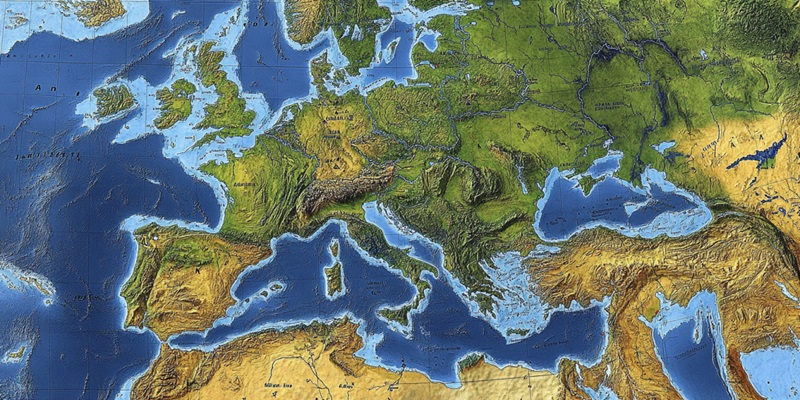Europe is making strides in the realm of artificial intelligence (AI), not only through technological advancements but also by emphasizing ethics and trust. At the forefront of this movement is the European Commission’s initiative to establish AI factories, which aim to consolidate Europe’s leadership in ethical AI development. These factories are envisioned to provide resources such as computing power, data access, and storage, thereby fostering a collaborative and innovative AI environment across the continent.
The Birth of AI Factories
Vision and Objectives
The European Commission has introduced AI factories to leverage the computational power of European High-Performance Computing (HPC) supercomputers. The goal is to enhance Europe’s capabilities in developing AI systems that are safe, reliable, and trustworthy. This initiative comes in response to increasing global competition in AI and aims to distinguish European AI development through a strong commitment to ethical standards.
AI factories are not just about technological prowess; they emphasize ethics by incorporating guidelines from the EU AI Act. This act ensures that AI systems developed in Europe adhere to rigorous safety and reliability standards, setting them apart from competitors who may not prioritize these values. By focusing on ethical AI, Europe aims to build public trust and encourage wider adoption of AI technologies.
Harnessing EuroHPC Supercomputers
A key component of the AI factories initiative is the utilization of EuroHPC supercomputers. These powerful machines are essential for training large generative models, which require immense computational resources. By providing these resources, AI factories enable startups, industries, and researchers across Europe to push the boundaries of AI innovation without compromising on ethical standards.
EuroHPC supercomputers not only offer computing power but also facilitate access to vast datasets necessary for AI training. This integration ensures that AI algorithms are trained on diverse and representative data, further enhancing their reliability and trustworthiness. The collaboration between AI factories and EuroHPC supercomputers is a testament to Europe’s commitment to creating a robust infrastructure for ethical AI development.
Collaborative European AI Ecosystem
Interconnected AI Factories
AI factories are designed to function as a network, creating an interconnected AI framework across Europe. This approach promotes resource sharing and joint innovation efforts, ensuring that advancements in AI are not siloed but benefit the broader European community. The interconnected nature of AI factories fosters a culture of collaboration, enabling researchers and developers to work together towards common goals.
This collaborative framework extends to national AI initiatives and leverages resources such as Testing and Experimentation Facilities and Digital Innovation Hubs. By linking these entities, Europe creates a cohesive ecosystem that supports the development, testing, and deployment of ethical AI technologies. This networked approach ensures that AI innovations are scalable and can be integrated into various sectors effectively.
Targeted Sector Integration
The AI factories initiative focuses on developing AI applications in strategic sectors deemed crucial for Europe’s economic growth and societal well-being. These sectors include healthcare, automotive, defense, aerospace, and agriculture. By targeting these areas, Europe aims to ensure that AI innovations directly contribute to improving quality of life and addressing critical challenges.
In healthcare, AI-driven diagnostic tools and personalized treatment plans have the potential to revolutionize patient care. The automotive sector can benefit from AI through advancements in autonomous driving and vehicle safety systems. In defense and aerospace, AI can enhance situational awareness and decision-making capabilities. Agriculture stands to gain from AI in terms of precision farming and efficient resource management. By integrating AI into these key sectors, Europe is positioning itself as a leader in both technological and ethical advancements.
Funding and Commitment
Significant EU Investment
The European Commission’s AI factories initiative is backed by substantial financial support, highlighting the EU’s commitment to AI innovation. Nearly €1bn from the Digital Europe Programme and Horizon Europe has been allocated to this project, with additional contributions from Member States. This significant investment underscores the EU’s dedication to fostering a leading-edge AI ecosystem that prioritizes ethical considerations.
By securing robust funding, the EU ensures that AI factories have the resources needed to drive innovation and maintain high ethical standards. This financial commitment also attracts top talent and encourages startups and established companies to participate in the initiative, further strengthening Europe’s AI landscape.
Long-Term Vision
Europe is making notable progress in artificial intelligence (AI), not only by advancing technology but also by focusing on ethics and trust. Leading this effort is the European Commission with its initiative to create AI factories aimed at reinforcing Europe’s leadership in ethical AI development. These AI factories are designed to offer essential resources, including computing power, data access, and storage. The goal is to encourage collaboration and innovation in AI across the continent.
As AI technology becomes increasingly vital to economies worldwide, Europe’s approach sets it apart by ensuring that ethical considerations and trust are at the core of these developments. This initiative underscores the importance of creating AI that is not only powerful but also responsible, promoting a landscape where technological innovation thrives alongside principles of transparency and accountability. By providing the infrastructure needed for AI research and development, these factories aim to nurture a vibrant, ethical AI ecosystem that aligns with European values and goals, setting a global standard for others to follow.

